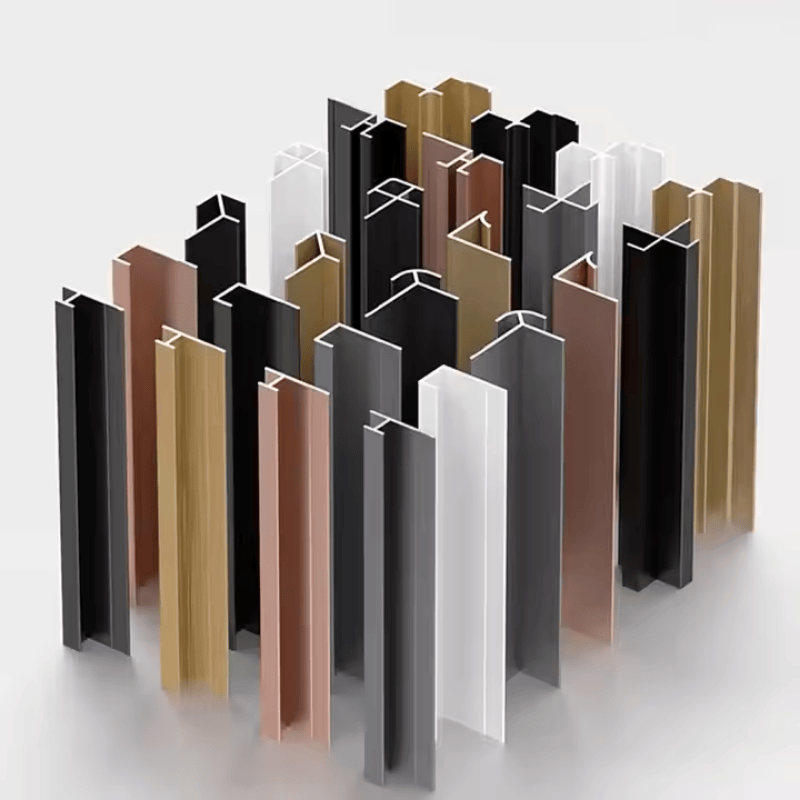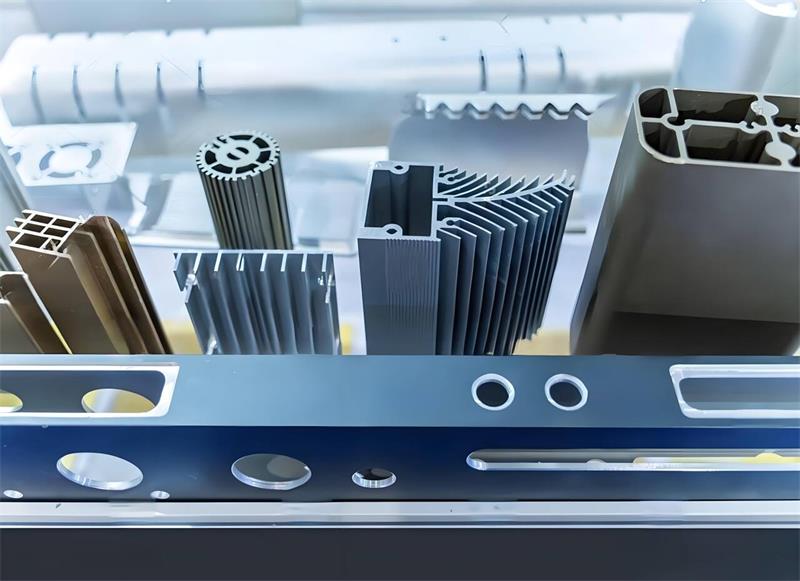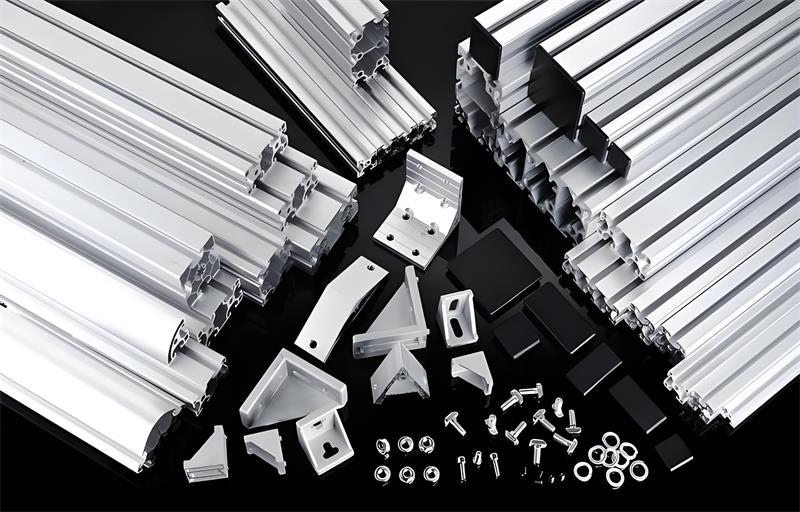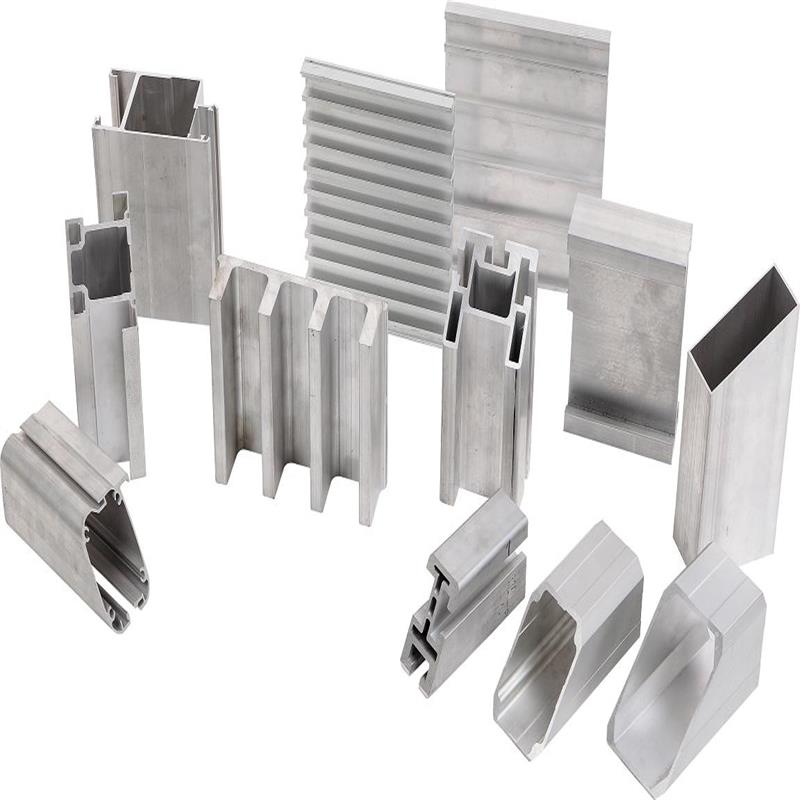Does Aluminum Profile Rust?

Does Aluminum Profile Rust?
Outline:
Introduction
o Overview of aluminum and its importance in various industries
o The question: Does aluminum profile rust?
Understanding Rust and Corrosion
o What is rust? A chemical breakdown of rusting
o Why aluminum doesn’t “rust” like iron or steel
o Corrosion vs. rust: what’s the difference?
Why Aluminum Doesn’t Rust
o The natural oxide layer on aluminum
o How aluminum protects itself from further corrosion
o The role of aluminum alloys
Types of Corrosion That Affect Aluminum Profiles
o Pitting corrosion
o Galvanic corrosion
o Crevice corrosion
o How to prevent corrosion in aluminum profiles
Aluminum Profiles vs. Steel: A Rust Comparison
o Steel’s susceptibility to rust
o Why aluminum is more resistant to rust than steel
o Examples of industries where aluminum is preferred over steel
Why Choose Aluminum Extrusion Profiles for Your Project
o Durability and corrosion resistance
o Lightweight but strong: the perfect material for construction, automotive, and industrial applications
o Eco-friendliness and recyclability
Surface Finishing Options to Improve Corrosion Resistance
o Anodizing: Strengthening the oxide layer
o Powder coating for additional protection and aesthetic appeal
o Mill finish for indoor or non-exposed applications
Applications Where Aluminum Profiles Excel
o Construction: windows, doors, curtain walls
o Automotive: body frames, trims
o Marine and aerospace: performance in extreme environments
o Industrial use: frames, support systems, machinery
Why Work with a Trusted Aluminum Profile Supplier
o The importance of quality materials and manufacturing
o Why working with a reputable aluminum profile manufacturer matters
o How Aluinno Aluminum Company ensures high-quality profiles that won’t rust
Conclusion
o Recap of aluminum’s rust resistance and benefits
o Contact Aluinno Aluminum Company for top-quality extruded aluminum profiles
Introduction
Aluminum is everywhere—from the window frames in your home to the body of your car and the machinery used in industrial operations. Known for its durability and versatility, aluminum extrusion profiles have become essential components in a wide range of industries. But if you’re considering aluminum profiles for your next project, one question might come to mind: Does aluminum rust?
The short answer is no, aluminum doesn’t rust in the same way iron or steel does. However, like all metals, aluminum is still susceptible to certain types of corrosion. Understanding how aluminum reacts to the environment and why it doesn’t rust is key to knowing why it's the material of choice for countless applications.
In this article, we’ll explore how aluminum resists rust, the types of corrosion that can affect it, and why aluminum extrusion profiles are a superior choice compared to other materials. You’ll also learn how to protect aluminum profiles from corrosion, and why working with a trusted extruded aluminum profiles supplier like Aluinno Aluminum Company is crucial to ensuring high-quality, durable materials.
Understanding Rust and Corrosion
To fully understand whether aluminum extrusion profiles rust, it’s important to first differentiate between rust and corrosion.
What is Rust?
Rust is a specific form of corrosion that occurs when iron or steel reacts with oxygen and moisture in the air. This chemical reaction forms iron oxide, commonly known as rust. Rust not only weakens the structural integrity of steel, but it also spreads over time, causing the material to flake away, leaving it vulnerable to further damage.
Corrosion vs. Rust: What’s the Difference?
While rust only affects iron and steel, corrosion is a broader term used to describe the breakdown of materials through chemical reactions with their environment. Corrosion can happen to many different materials, including aluminum, but the way aluminum corrodes is different from how iron rusts.
In short, aluminum doesn’t rust the way steel does, but it can still corrode in certain circumstances. However, due to its natural resistance, aluminum is much less susceptible to corrosion than iron or steel, making it a much more durable option for many applications.
Why Aluminum Doesn’t Rust
The primary reason aluminum doesn’t rust is because it doesn’t contain iron. Without iron, the typical oxidation reaction that causes rust simply doesn’t occur. Instead, aluminum undergoes a different kind of oxidation that actually helps protect the material from further damage.
The Natural Oxide Layer on Aluminum
When aluminum is exposed to oxygen—whether in the air or water—it reacts to form a thin, protective layer of aluminum oxide on its surface. This oxide layer is incredibly thin, but it forms almost immediately and acts as a barrier that prevents the metal underneath from being exposed to further oxidation. Essentially, aluminum creates its own protective coating that shields it from corrosion.
Unlike rust on steel, which weakens the material, this natural oxide layer strengthens aluminum and makes it more resistant to corrosion. This is why aluminum extrusion profiles are so highly valued in industries that require durable, long-lasting materials.
The Role of Aluminum Alloys
Most extruded aluminum profiles are made from aluminum alloys, which are blends of aluminum and other elements like magnesium or silicon. These alloys enhance aluminum’s natural properties, including its strength and resistance to corrosion.
Alloys like 6061 and 6063 are commonly used in aluminum profiles because they offer excellent corrosion resistance while maintaining a balance of strength and flexibility. Understanding the role of aluminum alloys helps explain why these profiles are the go-to choice for industries that need lightweight but durable materials.
Types of Corrosion That Affect Aluminum Profiles
While aluminum doesn’t rust like steel, it can still experience certain types of corrosion under the right conditions. The good news is that most of these types of corrosion are preventable with proper maintenance and protection.
1. Pitting Corrosion
This is one of the most common forms of corrosion that affects aluminum. It occurs when small, localized spots on the aluminum surface begin to break down, usually due to exposure to saltwater or harsh chemicals. While pitting corrosion can weaken aluminum over time, it is preventable with surface treatments like anodizing.
2. Galvanic Corrosion
Galvanic corrosion occurs when aluminum comes into contact with a more noble metal (like steel or copper) in the presence of an electrolyte (such as water). The difference in electrical potential between the metals causes the aluminum to corrode more quickly. Preventing galvanic corrosion involves isolating aluminum from other metals or using protective coatings.
3. Crevice Corrosion
Crevice corrosion is similar to pitting corrosion but occurs in confined spaces where oxygen levels are low. It often happens in joints or areas where moisture can collect, such as between an aluminum profile and a gasket. This type of corrosion can be mitigated through proper sealing and the use of protective coatings.
How to Prevent Corrosion in Aluminum Profiles
Although aluminum is naturally resistant to corrosion, additional steps can be taken to further protect aluminum extrusion profiles. Using surface finishes like anodizing or powder coating, proper maintenance, and avoiding contact with incompatible metals can extend the life of your aluminum profiles and prevent corrosion from developing.
Aluminum Profiles vs. Steel: A Rust Comparison
The question of whether aluminum rusts often comes up when comparing it to steel. Steel, especially untreated or uncoated steel, is highly susceptible to rusting when exposed to moisture and oxygen. In contrast, aluminum doesn’t rust, and the natural oxide layer that forms on its surface makes it far more resistant to environmental degradation.
Steel’s Susceptibility to Rust
Steel is an alloy made primarily of iron, which reacts with oxygen to form iron oxide (rust). Once rust forms, it can quickly spread and weaken the steel. In many outdoor applications, steel must be coated with protective materials (like paint or galvanization) to prevent rusting.
Why Aluminum Is More Resistant to Rust Than Steel
Because aluminum doesn’t contain iron, it can’t form rust. This makes aluminum a superior choice in environments where exposure to moisture and weather is common. Aluminum extrusion profiles can last for decades without significant corrosion, making them ideal for outdoor and marine applications.
Examples of Industries Where Aluminum is Preferred Over Steel
· Construction: Aluminum is commonly used for window frames, doors, and structural components because it won’t rust and can withstand exposure to the elements.
· Marine: Aluminum’s resistance to corrosion in saltwater environments makes it the material of choice for boat hulls, docks, and marine infrastructure.
· Automotive: Many automakers are choosing aluminum for body panels and frames to reduce weight and avoid rust, especially in climates prone to road salt.
Why Choose Aluminum Extrusion Profiles for Your Project?
Aluminum extrusion profiles offer many advantages that make them ideal for a wide range of applications. Here’s why you should consider aluminum profiles for your next project:
1. Durability and Corrosion Resistance
Aluminum’s natural resistance to corrosion, especially rust, means that profiles made from this material can last for decades with minimal maintenance. This durability makes aluminum extrusion profiles perfect for projects exposed to the elements, including construction, transportation, and even marine applications. Whether it’s the frame of a window or the body of a boat, aluminum ensures that the material won't degrade due to rust, providing long-term reliability.
2. Lightweight but Strong
One of aluminum’s greatest advantages is its combination of light weight and strength. Aluminum profiles are about one-third the weight of steel, which makes them easier to handle, transport, and install. Despite their lightweight nature, extruded aluminum profiles still offer remarkable strength and can support substantial loads, making them suitable for a variety of heavy-duty applications like in the automotive and aerospace industries.
3. Eco-Friendliness and Recyclability
Aluminum is one of the most recyclable materials in the world. It can be recycled repeatedly without losing its properties. This makes aluminum profiles an eco-friendly option, helping to reduce environmental impact. Recycled aluminum also uses only about 5% of the energy required to produce new aluminum, making it a cost-effective and sustainable choice.
With all these benefits, it’s no surprise that aluminum extrusion profiles are the go-to material for industries looking for durability, strength, and sustainability.
Surface Finishing Options to Improve Corrosion Resistance
While aluminum naturally resists rust, certain surface treatments can further enhance its corrosion resistance and appearance. Depending on the application, different finishes can provide additional layers of protection and aesthetic appeal.
1. Anodizing: Strengthening the Oxide Layer
Anodizing is an electrochemical process that thickens the natural oxide layer on the surface of aluminum. This process enhances aluminum's corrosion resistance and wear durability while allowing for a variety of color finishes. Anodized aluminum is often used in architectural applications where both strength and appearance are important, such as in window frames and curtain walls.
2. Powder Coating for Additional Protection and Aesthetic Appeal
Powder coating involves applying a dry powder to the aluminum profile and then baking it to create a smooth, durable finish. This finish not only improves the profile’s resistance to corrosion but also allows for custom color options. Powder-coated aluminum is commonly used in outdoor applications, such as fencing, railings, and automotive trims, where both aesthetics and durability are essential.
3. Mill Finish for Indoor or Non-Exposed Applications
A mill finish is the natural finish that aluminum has when it comes directly from the extrusion press. While it doesn’t offer the enhanced protection that anodizing or powder coating does, mill finish aluminum is suitable for indoor or non-exposed applications where appearance and corrosion resistance are not major concerns.
Applications Where Aluminum Profiles Excel
Thanks to aluminum’s natural resistance to corrosion, rust, and its lightweight yet durable properties, aluminum extrusion profiles are used in a wide variety of industries. Here are a few key applications where aluminum profiles excel:
1. Construction
In construction, aluminum is widely used for window frames, door frames, curtain walls, and roofing systems. Its rust-resistant nature makes it a top choice for exterior elements that are regularly exposed to moisture and other environmental factors. Aluminum is also used in structural components, where its strength and lightweight properties allow for easy installation without compromising on durability.
2. Automotive
The automotive industry relies heavily on aluminum profiles for body panels, frames, and trims. Aluminum’s corrosion resistance is particularly important in climates where road salt is used during the winter, as steel components are prone to rust in such conditions. Aluminum’s light weight also contributes to improved fuel efficiency, making it a preferred material in modern vehicle design.
3. Marine and Aerospace
In the marine industry, aluminum profiles are used for boat hulls, decking, and dock structures because they can withstand saltwater environments without rusting. Similarly, in aerospace applications, aluminum’s combination of light weight and strength makes it the perfect material for aircraft bodies, wing structures, and interior components.
4. Industrial Use
In industrial settings, aluminum extrusion profiles are commonly used in the construction of frames, support systems, conveyor belts, and workstations. Their versatility and strength make them ideal for building lightweight yet durable systems that can withstand heavy use.
Why Work with a Trusted Aluminum Profile Supplier
Choosing the right aluminum profile supplier is just as important as selecting the right material. Working with a reputable supplier ensures that you get high-quality extruded aluminum profiles that meet your project’s specifications and performance requirements.
1. The Importance of Quality Materials and Manufacturing
Not all aluminum profiles are created equal. High-quality profiles are made from premium-grade aluminum alloys and are manufactured using precise extrusion techniques. Low-quality profiles may be more prone to defects, poor corrosion resistance, or inconsistent dimensions, which can compromise your project. A trusted extruded aluminum profiles supplier will provide profiles that are strong, durable, and free from defects.
2. Why Working with a Reputable Aluminum Profile Manufacturer Matters
A reputable aluminum profile manufacturer like Aluinno Aluminum Company will offer more than just quality materials. They will provide expert advice, help you select the right profiles for your specific application, and ensure timely delivery. This level of service is critical for ensuring your project runs smoothly from start to finish.
Why Aluinno Aluminum Company is the Best Choice
When it comes to finding a reliable aluminum profile manufacturer, Aluinno Aluminum Company stands out as a trusted partner. Here’s why:
1. Extensive Product Range
Whether you need standard aluminum profiles or custom extrusions, Aluinno Aluminum Company offers a wide range of profiles to meet your project’s needs. From architectural applications to heavy-duty industrial uses, Aluinno provides profiles designed to perform in even the toughest environments.
2. Commitment to Quality
At Aluinno Aluminum Company, quality is our top priority. We use high-grade aluminum alloys like 6061 and 6063 to ensure our profiles are strong, durable, and resistant to corrosion. Our rigorous quality control processes ensure that every profile meets the highest industry standards.
3. Custom Solutions
No two projects are alike, which is why we offer custom aluminum profiles tailored to your exact specifications. Whether you need a unique shape, a specific finish, or a custom alloy, our team will work with you to create a solution that meets your exact needs.
4. Expert Advice and Support
Choosing the right profile can be challenging, especially for complex projects. Our experienced team is here to help. We offer expert guidance on selecting the right profiles for your project, ensuring you get the perfect balance of strength, weight, and corrosion resistance.
5. Reliable Delivery
At Aluinno Aluminum Company, we understand that timely delivery is critical to the success of your project. We pride ourselves on meeting delivery deadlines, ensuring that your profiles arrive when you need them, ready for installation.
Conclusion
So, does aluminum rust? The answer is no aluminum extrusion profiles don’t rust like steel, thanks to aluminum’s natural oxide layer, which protects it from corrosion. This rust resistance, combined with aluminum’s lightweight, strength, and recyclability, makes it an ideal material for a wide range of applications, from construction to automotive and industrial uses.
By working with a trusted extruded aluminum profiles supplier like Aluinno Aluminum Company, you can ensure that your aluminum profiles are of the highest quality, corrosion-resistant, and ready to stand the test of time. Whether you need standard profiles or custom solutions, Aluinno Aluminum has the expertise and products to meet your needs.
Looking for high-quality aluminum extrusion profiles that won’t rust or corrode? Contact Aluinno Aluminum Company today to speak with one of our experts. We offer a wide range of standard and custom profiles designed to perform in any environment. Let us help you find the perfect solution for your next project.


 En
En



 Location:
Location:















